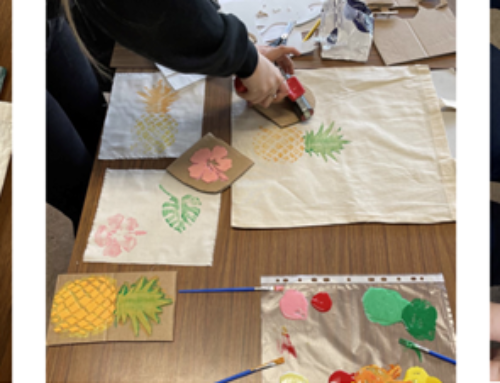In this third of a series of blogs reflecting on previous enhancement themes projects, Agnes Tan, Assistant Professor in the School of Social Sciences, shares how she and her colleagues supported international students to develop their academic skills and adjust to the academic culture of university.
Background of the mini project
Together with my colleagues, Jimmy Tam, David Ong, and Ricky Wong, I worked on an enhancement project: Strengthening Learning Community: Enhancing International Student Experience from 2021 to 2022. The project aimed to enhance the learning and teaching experience of international students at Heriot-Watt Malaysia campus by developing a model to support international students in the areas of academic writing, plagiarism and literacy skills. Through the support, it was intended to improve the learning experience of the international students, and to reduce academic misconduct among international students.
As a global university, Heriot-Watt University attracts a wide range of students. In the case of Malaysia, the University has been receiving growth in international students in recent years. These students need support around issues including academic writing, academic misconduct, English language development, immigration, social support, and mental health.
We observed that international students have challenges in adjusting to the academic culture in a foreign university. The university has support platforms for academic study skills, which helps international students to analyse and integrate sources, enhance citing, and strengthen their coursework and dissertations through workshops, class visits, and personal tutor’s support. However, most international students still find it challenging to comply with the requirements.
What did we do?
We introduced few intervention activities aimed at assisting the international students in coping with the challenges when adjusting to the learning and teaching practices at HWUM, particularly in academic integrity and academic writing. The expectations and requirements of the university were highlighted to the international students, and related-activities or tasks were arranged for them to get familiar with academic integrity and academic writing. The intervention activities include:
- Study skills workshops, including academic integrity workshop, academic writing workshops referencing, plagiarism workshop and clinic sessions.
- Think-Pair-Share (TPS) sessions – This is a collaborative learning strategy where international students work together with seniors to address the academic challenges faced by the international students. Ten seniors were involved in supporting the TPS sessions.
The target group of this project was the international students from China, who come from a different education system. In total there were 22 international students from China who participated in this project. They pursued Accounting and Business Finance, Bachelor of Business Administration, and International Business Management programmes at HWUM, and were direct entry students at Stage 3 at HWUM.
What was the impact?
A pre-test and a post-test were used to assess the changes in the international students’ understanding of academic writing and referencing. In general, it was observed that the students are more confident in answering the questions given after the intervention activities were introduced. Also, major improvement was observed when they were asked to do practices on how to paraphrase, how to write in-text citations and references.
The following table summarises the changes between pre- and post-test results.
| Test areas | Changes in students by comparing pre- and post- test results |
| Identification of mistakes made in a sample | About the same percentage of students that could identify the mistakes made in the given sentence (pre is 40%, post is 44%) |
| Paraphrasing | The percentage of students who could do the paraphrasing improved from 10% to 44%. |
| In-text citation | The percentage of students who could do In-text citation improved from 0% to 77%. |
| Referencing format | The percentage of students who could reference properly improved from 10% to 66%. |
Key learnings from this mini project
The key learnings from this project include:
- Appropriate intervention activities are important to help the international students in coping with the challenges in adjusting to the learning and teaching practices when they are studying in a different learning and teaching environment.
- Involving seniors in supporting students is effective as they share the same experience and therefore can guide the juniors better. The peer support makes the international students feel more secure and comfortable in a new learning and teaching environment. However, training should be given to the seniors, and their interaction with juniors should be monitored.
- When planning activities involving the international students, cultural context should be taken into consideration during the project planning. An ice-breaking session is helpful to know more about the international students.
Image credit: Photo by Helena Lopes on Unsplash






